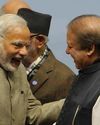To understand Mahatma Gandhi’s position on political economy, one must go to the first few verses of his favourite Upanishad.JAITHIRTH RAO

MAHATMA GANDHI continues to be quoted by people of different political persuasions. He is seen by some as a “friend of capitalists” and by others as a “votary of socialism”. It is my contention that in order to understand Gandhi’s position on political economy, one needs to understand the sources of Gandhi’s ideas. Who influenced him and how? Gandhi was an English barrister and clearly Common Law concerns about trusts and trusteeship were part of his education and training. He was very friendly with Quakers, who almost certainly influenced him with respect to pacifism. Quakers have also had fairly strong views on issues like slavery, wealth, inherited wealth and so on. In the religious field, the influences of the Bhagavad Gita, the Ramcharitmanas, Gujarati Vaishnava hymns and the Sermon on the Mount are well-known. In this article, I propose to review the influence that the Isavasya Upanishad had on Gandhi and how it accounts for his surprisingly unusual and radical views on wealth, capitalism and trusteeship.
This story is from the October 2017 edition of Swarajya Mag.
Start your 7-day Magzter GOLD free trial to access thousands of curated premium stories, and 9,000+ magazines and newspapers.
Already a subscriber ? Sign In
This story is from the October 2017 edition of Swarajya Mag.
Start your 7-day Magzter GOLD free trial to access thousands of curated premium stories, and 9,000+ magazines and newspapers.
Already a subscriber? Sign In

Refuging Progess
There is a well-orchestrated global conspiracy to deny scientific and technological developments from the West to Third World countries.

The Monk Of Science
Vivekananda believed that Religion should be subjected to scientific methods of investigation. The third and concluding part of our series on the Swami and his views on science.
The Next Step
Indian technical manpower can be trained for high-value-added emerging services in the era of mass commoditisation of hardware.
The Threat Of Autarchy
The force of globalisation is an irreversible reality, and it is countries like India and China that will nurture it going forward.

Neanderthals: The Womb Of Caves
Recent discoveries indicate that Neanderthals may have had a rich inner life, including symbolic thought. Indeed, they may have been the progenitors of human religions.

Getting India's World Right
Incremental concessions will get India nowhere with Pakistan and China. What we need is a classically conservative foreign policy, based on realism.

The Hesitant Orbit
In order to march boldly ahead into the deep space, New Delhi must work towards building a station, boost its techno-economic planning and use the Indian Space Research Organisation smartly.

Nudges And Narratives
The debate surrounding Sanjay Leela Bhansali’s Padmavati brings India a complex network of portraits within a cultural world-system.

The Spell Of Specialisation
THE INDIAN ADMINISTRATIVE SERVICE NEEDS AN URGENT REJIG. THE KEY TO SPEED AND EFFICIENCY LIES IN PUTTING AN END TO A GENERALIST APPROACH AND IN GOING FOR A NEW SERVICE.
The Great Gamble
With demonetisation, the prime minister has taken a huge risk— both economic and political. He must succeed, because this move could transform both our economy and our society.